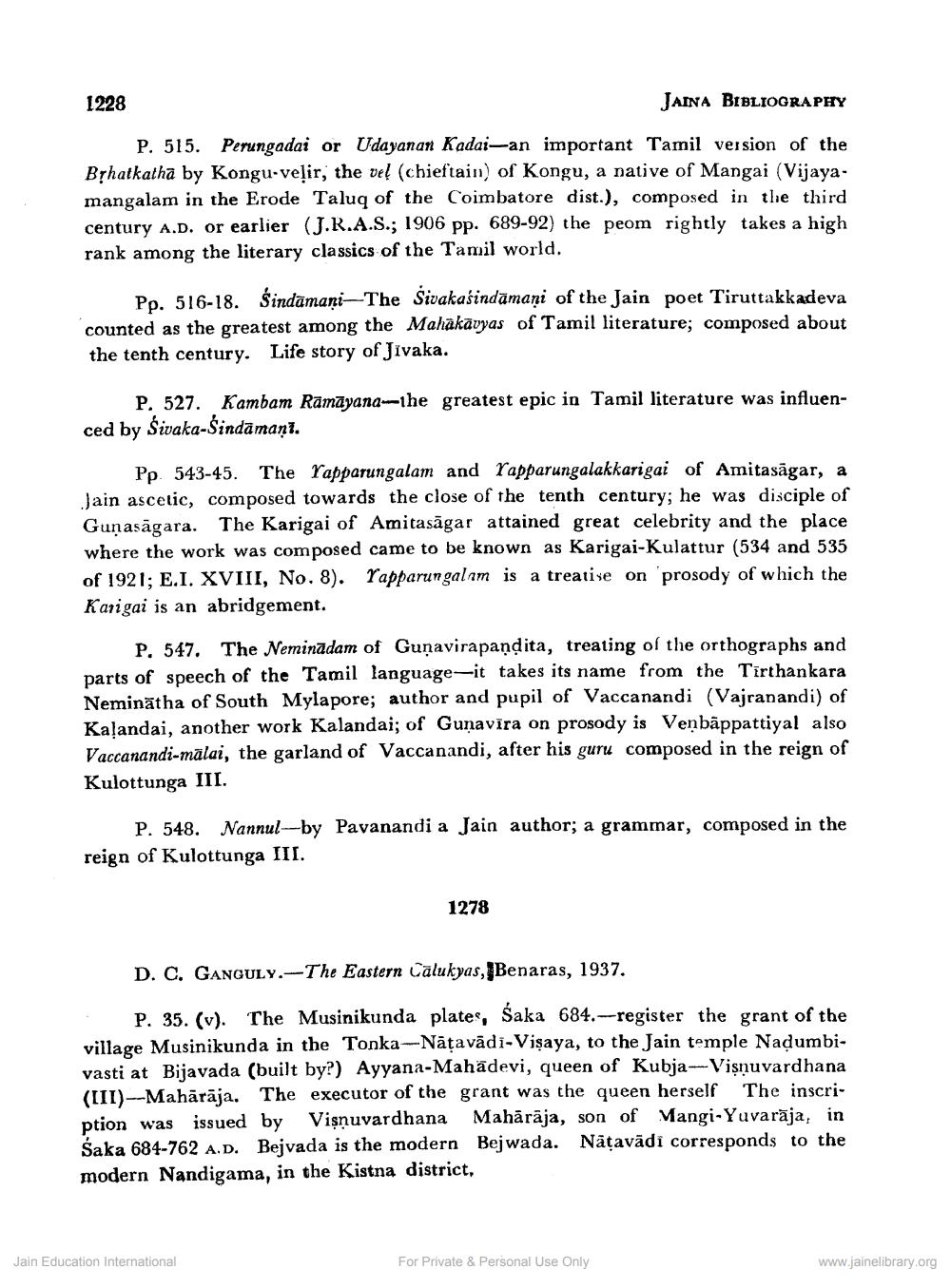________________
JAINA BIBLIOGRAPHY
P. 515. Perungadai or Udayanan Kadai-an important Tamil version of the Bṛhatkatha by Kongu velir, the vel (chieftain) of Kongu, a native of Mangai (Vijayamangalam in the Erode Taluq of the Coimbatore dist.), composed in the third. century A.D. or earlier (J.R.A.S.; 1906 pp. 689-92) the peom rightly takes a high rank among the literary classics of the Tamil world.
1228
Pp. 516-18. Sindamani-The Sivakalindamani of the Jain poet Tiruttakkadeva counted as the greatest among the Mahakaryas of Tamil literature; composed about the tenth century. Life story of Jivaka.
P. 527. Kambam Ramayana-the greatest epic in Tamil literature was influenced by Sivaka-Sindāmaṇī.
Pp. 543-45. The Yapparungalam and Yapparungalakkarigai of Amitasågar, a Jain ascetic, composed towards the close of the tenth century; he was disciple of Gunasagara. The Karigai of Amitasågar attained great celebrity and the place where the work was composed came to be known as Karigai-Kulattur (534 and 535 of 1921; E.I. XVIII, No. 8). Yapparungalam is a treatise on prosody of which the Karigai is an abridgement.
P. 547. The Neminadam of Guṇavirapandita, treating of the orthographs and parts of speech of the Tamil language-it takes its name from the Tirthankara Neminatha of South Mylapore; author and pupil of Vaccanandi (Vajranandi) of Kalandai, another work Kalandai; of Gunavira on prosody is Venbäppattiyal also Vaccanandi-malai, the garland of Vaccanandi, after his guru composed in the reign of Kulottunga III.
P. 548. Nannul-by Pavanandi a Jain author; a grammar, composed in the reign of Kulottunga III.
1278
D. C. GANGULY.-The Eastern Calukyas, Benaras, 1937.
P. 35. (v). The Musinikunda plates, Saka 684.-register the grant of the village Musinikunda in the Tonka-Natavādi-Visaya, to the Jain temple Naḍumbivasti at Bijavada (built by?) Ayyana-Mahadevi, queen of Kubja-Visnuvardhana (III)-Mahārāja. The executor of the grant was the queen herself The inscription was issued by Visnuvardhana Mahārāja, son of Mangi-Yuvaraja, in Saka 684-762 A.D. Bejvada is the modern Bejwada. Nätavadi corresponds to the modern Nandigama, in the Kistna district,
Jain Education International
For Private & Personal Use Only
www.jainelibrary.org




